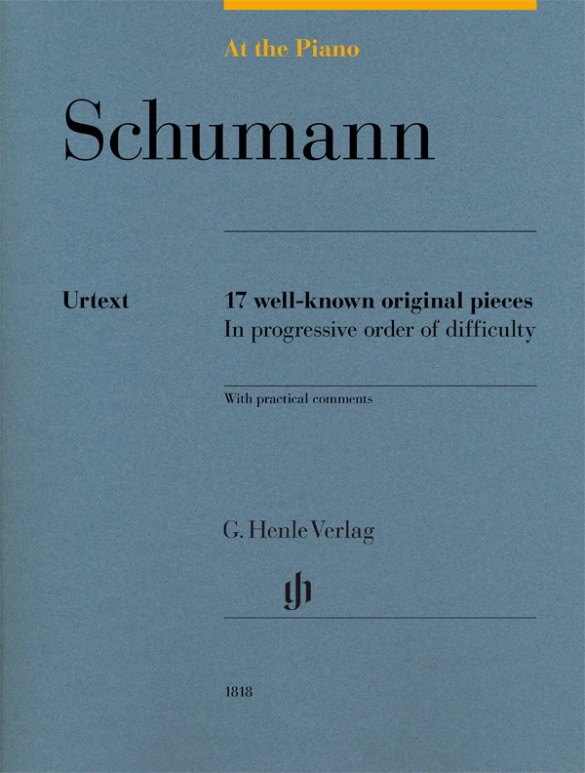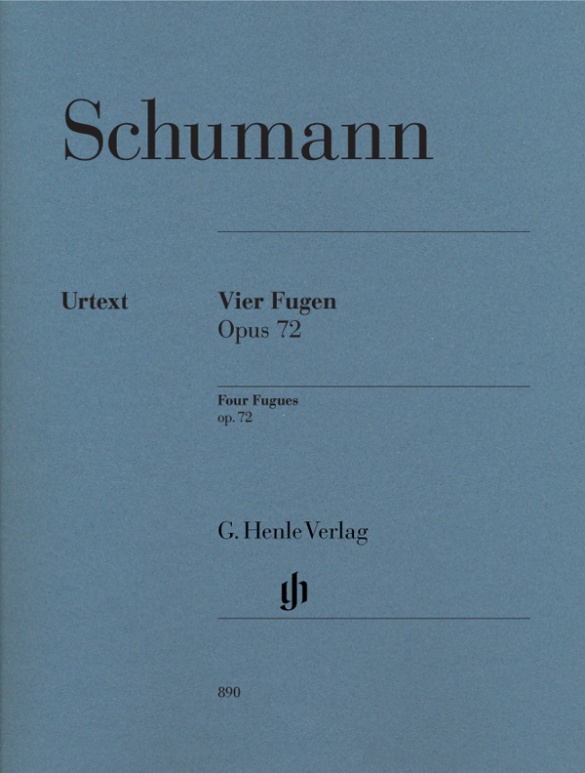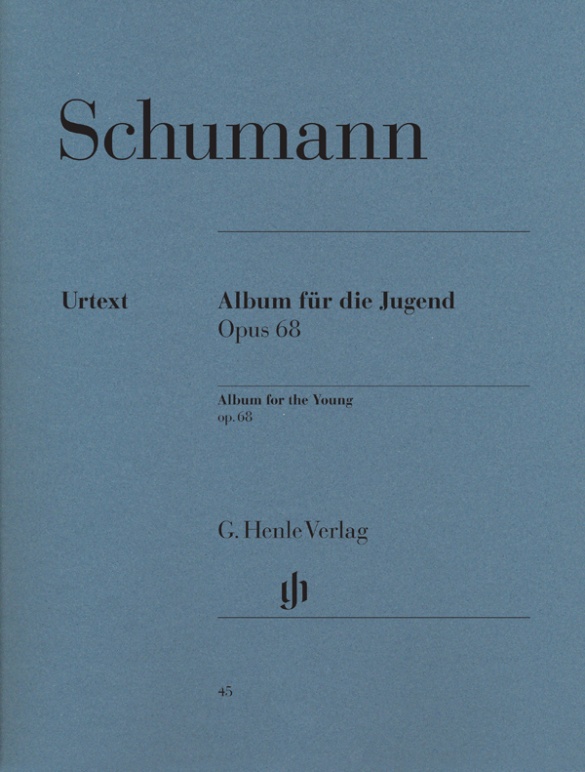

Robert Schumann
Album for the Young op. 68
Initially only conceived as a birthday album for his daughter Marie, Schumann’s “Pieces for Piano” op. 68 received tremendous acclaim throughout the world. Is there a piano student who has not played part of them? It is, however, a less well-known fact that Schumann also composed a “music historical course of instruction” for the piano in this connection. We have included this and other pieces originally intended for the “Album” in the appendix to our painstakingly revised edition. Rounded off by the inclusion of Ludwig Richter’s illustration for the title page of the first edition and the trilingual print of the “Advice to Young Musicians”, our Urtext edition offers a vivid picture of middle-class musical culture in Schumann’s times.
Content/Details
About the Composer
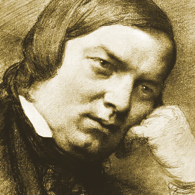
Robert Schumann
Connected with his oeuvre is the term he coined, Poetic Music, with which he strove for a fusion of literature and music, a paradigm particularly seen in his lyric piano pieces prior to 1839. Thereafter he devoted himself to other genres (song, symphony, chamber music, among others).
| 1810 | Born in Zwickau on June 8, the son of a bookdealer. |
| from 1828 | Studies law in Leipzig, piano with Friedrich Wieck. Decision to pursue a career in music. |
| 1830–39 | He exclusively composes piano works, mostly cycles, including “Papillons,” Op. 2 (1829–32); “Carnaval,” Op 9 (1834/35); “Davidsbündlertänze,” Op. 6 (1837); “Kinderszenen” (“Scenes from Childhood”), Op. 15 (1837/38); “Kreisleriana,” Op. 16 (1838); “Noveletten,” Op. 21 (1838). |
| 1832 | A paralysis of a finger in his right hand makes a career as a pianist impossible. Founding in 1833 of the fantasy brotherhood the “Davidsbund” (“League of David”). |
| 1835–44 | Editor of the Neue Zeitschrift für Musik (New Journal of Music). |
| 1840 | Marriage to Clara Wieck; 138 songs, including the Eichendorff Liederkreis, Op. 39; the song cycle “Dichterliebe,” Op. 48 |
| 1841 | Symphony No. 1 in B-flat major (“Spring” Symphony), Op. 38, and Symphony No. 4 in D minor, Op. 120. |
| 1842 | Three string quartets, Op. 41; further chamber music. |
| 1843 | Teacher of composition at the Leipzig Conservatory. Oratorio “Paradise and the Peri,” Op. 50. |
| 1845 | He settles in Dresden. Journey to Russia. |
| 1845 | Piano Concerto in A minor, Op. 54, Symphony No. 2 in C major, Op. 61. |
| 1850 | City music director in Düsseldorf. Premiere in Leipzig of his opera “Genoveva,” Op. 81. Symphony in E-flat major (“Rhenish”), Op. 97; Cello Concerto in A minor, Op. 129. |
| 1853 | Beginning of his friendship with Brahms. Completion of the Scenes from Faust. Violin Concerto in D minor for Joseph Joachim. |
| 1854 | Suicide attempt and admission to the psychiatric institution in Endenich, near Bonn. |
| 1856 | Death in Endenich on July 29. |
About the Authors

Ernst Herttrich (Editor)
Dr. Ernst Herttrich, born in 1942 in Würzburg, read musicology, history, German and theology at the universities in Würzburg and Cologne. In 1970 he earned his doctorate in Würzburg with a study of the expression of melancholy in the music of Mozart.
From 1970 to 1990 he was an editor at G. Henle Publishers in Munich, after which he was Head of the Beethoven Complete Edition for over 15 years. In 1999 he took over as Head of the Beethoven-Haus Publishers, and from 2001 was made Head of the Beethoven-Archiv, the research centre at the Beethoven-Haus.
He has been a visiting professor at Meiji Gakuin University in Tokyo and has undertaken several lecture tours both there and to Kyoto. His research interests include source studies, editorial techniques and music history. Herttrich’s publications include “Beethoven. Liederkreis an die ferne Geliebte” (Bonn 1999) and “Ludwig van Beethoven. Biographie in Bildern” (Bonn, 2000). Herttrich has edited over 100 Urtext editions for G. Henle Publishers.
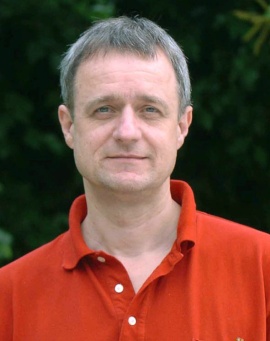
Andreas Groethuysen (Fingering)
Prof. Andreas Groethuysen, born in 1956 in Munich, studied music with Ludwig Hoffmann in Munich and, on a scholarship from the “Studienstiftung des Deutschen Volkes”, with Peter Feuchtwanger in London.
After several years as a soloist, Groethuysen formed a piano duo with Yaara Tal, which has now become the focus of his artistic work. The duo regularly performs in many European countries, in Israel, China, North and South America. In exclusive cooperation with SONY CLASSICAL the internationally acclaimed piano duo has released a great many CDs – 28 to date – almost all of which have been awarded prizes.
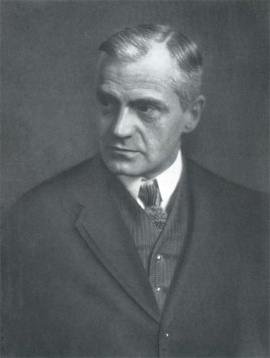
Walther Lampe (Fingering)
Prof. Walther Lampe, born in 1872 in Leipzig, died in 1964 in Munich, studied the piano with Clara Schumann at the Hoch’schen Konservatorium in Frankfurt, as well as music theory and composition. He concluded his studies in Berlin, where he was a student of Herzogenberg and Humperdinck.
He first appeared as a concert pianist, but in 1920 was appointed as a professor and head of a class at the Münchener Akademie der Tonkunst. After Lampe was given emeritus status in 1937, he took on a piano class at the Mozarteum in Salzburg. Günter Henle, who grew up in Munich, was a private pupil of Lampe’s, from the age of 15 (in 1914). In his autobiography he wrote of his piano teacher in the following glowing terms:
“The years in which Walther Lampe, the renowned pianist and Head of piano master-classes in Munich and Salzburg, instructed me in the higher mysteries of piano playing, are amongst the most treasured memories of my youth. […] Lampe, himself an excellent concert pianist, had the reputation of being one of the leading teachers. Due to his practical experience of many decades he was able to pass on his great knowledge and skill both in words and through his own playing in a highly inspiring and supportive manner. His interpretations of Mozart were positively divine. […] I remain indebted to him for his great artistic suggestions and his friendship, which he shared with me over decades.”
During the first few years of World War II, Günter Henle looked up his old teacher and friend in Munich several times to play music with him. It was self-evident for Günter Henle to inform Walther Lampe of his plans to set up his music publishing house shortly after the end of the war, asking him for his help and advice. Lampe was very actively involved in the first editions: almost all of the Urtext editions published in the early years were supervised intensively by Lampe, a fact which is attested by the comprehensive correspondence in the archives of G. Henle Publishers. And Lampe also contributed his own fingerings to almost all of these editions. It is a very impressive list of titles, which even today still form part of G. Henle Publishers’ core repertoire.
Product Safety Informations (GPSR)

G. Henle Verlag
Here you can find the information about the manufacturer of the product.G. Henle Verlag e.K.
Forstenrieder Allee 122
81476 München
Germany
info@henle.de
www.henle.com
De nieuwe Urtext van Henle is een pronkjuweel en heeft werkelijk alles wat je je maar kunt wensen.
Pianowereld, 2008Die Anschaffung lohnt sich selbst dann, wenn eine ältere Ausgabe längst im Notenschrank steht. Weil der Herausgeber Ernst Herttrich ganze Arbeit geleistet hat: Die Stücke wurden völlig neu durchgesehen, bei etlichen gibt es klein gedruckte Alternativ-Fassungen, die eine völlig neue Sicht der Dinge erlauben.
Westfälische Nachrichten, 2008recommendations
autogenerated_cross_selling
Further editions of this title


